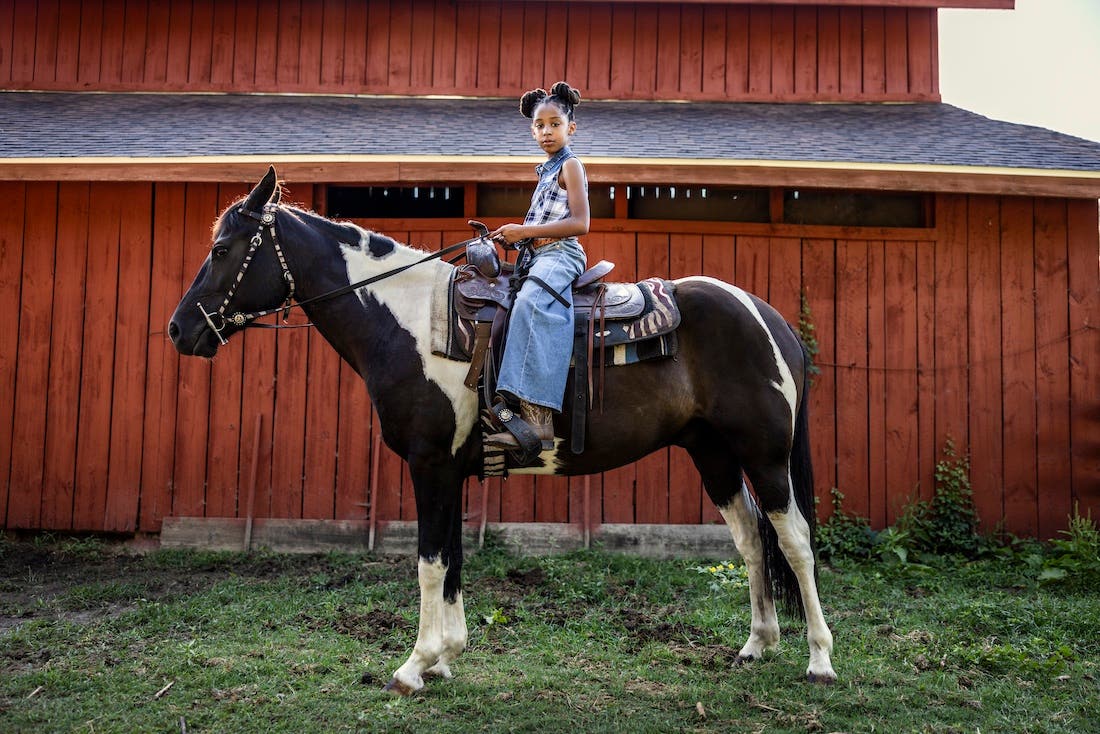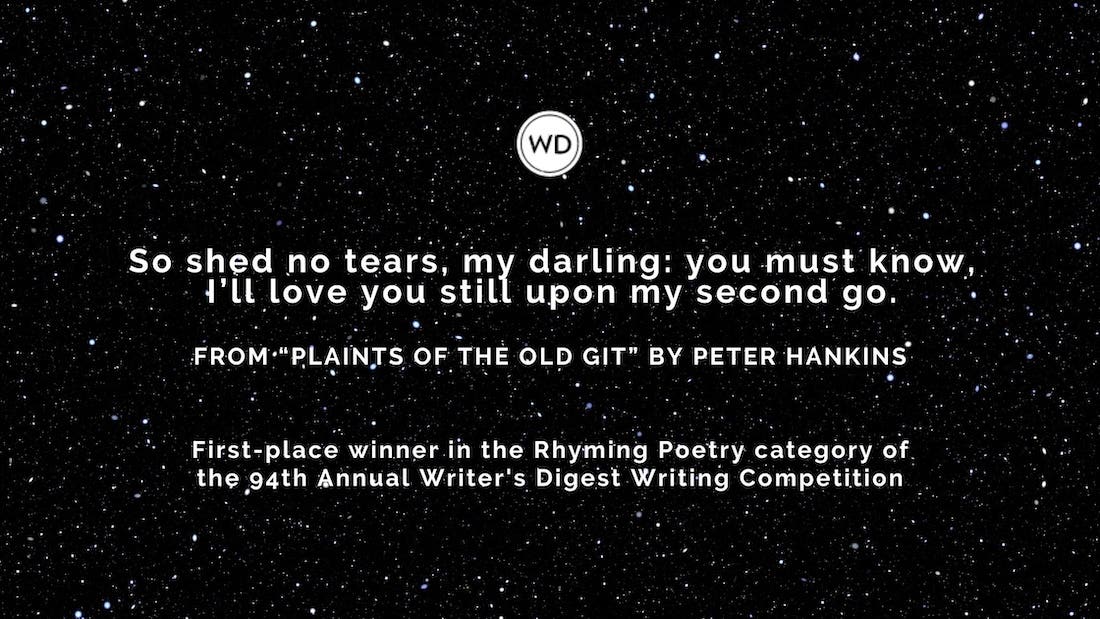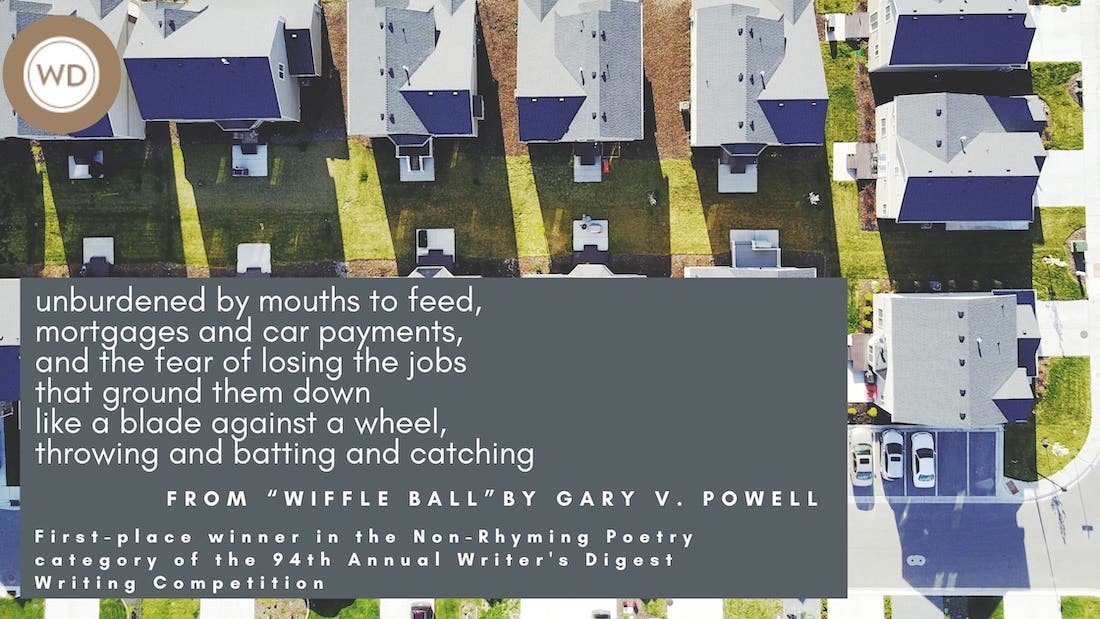Judith Chibante: 19th Annual Writer’s Digest Poetry Awards Winner
Judith Chibante, winner of the 19th Annual Writer’s Digest Poetry Awards, shares the story behind her winning poem, “Naïve Beauty.”
I’ve said it before, but choosing the winner of the Writer’s Digest Poetry Awards is one of my favorite things to do each year. In 2024, there were more than 700 entries covering a range of forms, subjects, issues, and themes. In the end, I selected Judith Chibante’s “Naïve Beauty” for the First Place Prize of $1,000, publication in Writer’s Digest, and a 20–minute consultation with yours truly.
Chibante, who has been writing “since Mrs. Thompson’s English class in high school” before going on to teach for four decades herself, previously finished in the Top 10 for this competition multiple times, and her perseverance paid off this time around. For me, her poem “Naïve Beauty” was a sonic delight focused on natural beauty.
Here’s a quick Q&A:
What are you currently up to?
I have not yet published a full-length book, and would like to shape the current manuscript I’m working on in that direction. That, of course, means more prolific writing, which is a major focus right now. Why not write a poem a day? (WD features a path for this.) Or at least a week? I continue to need to challenge myself on this.
What inspired “Naïve Beauty”?
An in-depth study of Gerard Manley Hopkins gave impetus for the form, but the ideas are from my own discoveries about creating the new—what hadn’t been in the world until I brought it into Being. When I was a young girl, I made a pillow out of felt and yarn; even though I had used a pattern, I remember the euphoria to look at that pillow and realize it had never “been”
before—now it “was.” This poem expresses the power—and, I think—the magic of making a new entity: finishing the hat in Stephen Sondheim’s words.
And … that making saves us. Any one of us at any moment may need redeeming. From what? From the ordinary, from past slovenly or half-realized effort, from self-doubt. Perhaps these are the “sins” (if any) of the artist.
If you could pass on one piece of advice to other poets, what would it be?
You are as much an artist as Monet or Beethoven—their reputations were created by others embracing and lifting their art. Their own creative process is the same one you tussle with. You paint in the language of images and description and fresh observations. Put everything down on your “new canvas” (it’s only blank until you come to it)—that three-word refrain repeatedly playing in your head, the inspirational turn of phrase from Call the Midwife (e.g., “We are each other’s wealth and our greatest good fortune …”). Keep a running log on your tablet to catch yourself—and others—being brilliant; use it as a personal source to mine.
Also, seek out poems that speak to you to learn “by heart”—your heart. Mine is stirred by poems of poets as diverse as Charles Baudelaire (“Be Drunk”) and Jane Kenyon (“Happiness”). In this way, you build a body of high language that becomes a background to draw from for your own efforts. Once poems are living in your heart—those of others, as well as your own—you can access them at 3 a.m. or standing in the grocery check-out line or sitting in another waiting room. And they make for a deep and rich anteroom for meditation.








